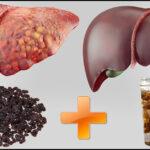Introduction
Are you constantly plagued by the burning sensation in your chest and throat, often accompanied by regurgitation and a sour taste in your mouth? If so, you may be experiencing symptoms of heartburn and gastroesophageal reflux disease (GERD). These conditions can significantly impact your quality of life, causing discomfort and interfering with daily activities. Fortunately, there are effective acid reducers available that can provide relief and help manage these conditions. In this article, we will explore various acid reducers for heartburn and GERD, their mechanisms of action, and how they can alleviate your symptoms.
Acid Reducers For Heartburn, GERD: Understanding the Basics
What is Heartburn?
Heartburn is a common symptom characterized by a burning sensation in the chest and throat. It occurs when stomach acid flows back into the esophagus, irritating the lining. The primary cause of heartburn is a weakened lower esophageal sphincter (LES), which allows stomach acid to escape into the esophagus.
What is GERD?
GERD, or gastroesophageal reflux disease, is a chronic condition that occurs when acid reflux becomes frequent and severe. It can lead to more severe symptoms such as chronic cough, hoarseness, difficulty swallowing, and chest pain. If left untreated, GERD can cause complications like esophagitis, ulcers, and strictures.
Acid Reducers: Your Ally Against Heartburn, GERD

Acid reducers play a crucial role in managing heartburn and GERD symptoms. These medications work by reducing the production of stomach acid and alleviating the irritation and discomfort caused by acid reflux. Let’s explore some of the most effective acid reducers available on the market today.
Proton Pump Inhibitors (PPIs)
Proton pump inhibitors are widely prescribed for the treatment of heartburn and GERD. They work by inhibiting the enzyme responsible for producing stomach acid, thereby significantly reducing acid levels. PPIs provide long-lasting relief and are available both over-the-counter and by prescription. Some popular PPIs include:
- Omeprazole (Prilosec)
- Esomeprazole (Nexium)
- Lansoprazole (Prevacid)
- Pantoprazole (Protonix)
It’s important to note that while PPIs are effective, long-term use should be monitored by a healthcare professional due to potential side effects.
H2 Receptor Antagonists
H2 receptor antagonists, also known as H2 blockers, are another class of acid reducers commonly used to manage heartburn and GERD. They work by blocking histamine receptors in the stomach, which reduces acid production. H2 blockers are available over-the-counter and by prescription. Some popular H2 receptor antagonists include:
- Cimetidine (Tagamet)
- Famotidine (Pepcid)
- Ranitidine (Zantac)
Antacids
Antacids provide quick relief for occasional heartburn and are available over the counter. These medications work by neutralizing stomach acid, reducing the burning sensation and discomfort. While antacids provide immediate relief, their effects are short-lived compared to other acid reducers. Some common antacids include:
- Tums
- Rolaids
- Maalox
FAQs About Acid Reducers For Heartburn, GERD
Can acid reducers cure heartburn and GERD?
While acid reducers can effectively manage heartburn and GERD symptoms, they do not cure the underlying conditions. These medications provide temporary relief and should be used in conjunction with lifestyle modifications for long-term management.
Are there any side effects associated with acid reducers?
Like any medication, acid reducers can have side effects. Common side effects may include headaches, nausea, diarrhea, and constipation. It’s important to consult with a healthcare professional before starting any new medication to ensure it is suitable for you.
Can I take acid reducers while pregnant?
It’s essential to consult with your healthcare provider before taking any medications during pregnancy. Some acid reducers, such as antacids, are generally considered safe for short-term use. However, it’s best to discuss the potential risks and benefits with your doctor.
Can lifestyle modifications help reduce heartburn and GERD symptoms?
Yes, lifestyle modifications can play a significant role in managing heartburn and GERD. Some effective strategies include:
- Avoiding trigger foods and beverages, such as spicy foods, citrus fruits, and caffeine.
- Eating smaller, more frequent meals.
- Elevating the head of your bed to prevent acid reflux during sleep.
- Maintaining a healthy weight.
- Avoiding lying down immediately after eating.
Can I stop taking acid reducers once my symptoms improve?
It’s crucial to follow your healthcare provider’s guidance regarding the duration of acid reducer use. Stopping medication abruptly may result in a rebound effect, causing a flare-up of symptoms. Work with your doctor to determine the most appropriate treatment plan for your specific condition.
Are there any natural remedies for heartburn and GERD?
Several natural remedies may provide relief for heartburn and GERD symptoms. These include:
- Consuming ginger or chamomile tea.
- Chewing gum to stimulate saliva production.
- Trying acupuncture or relaxation techniques to reduce stress.
However, it’s important to note that natural remedies may not work for everyone, and it’s best to consult with a healthcare professional for personalized advice.
Conclusion
Living with heartburn and GERD can be challenging, but there are effective solutions available to alleviate your symptoms and improve your quality of life. Acid reducers, such as proton pump inhibitors, H2 receptor antagonists, and antacids, provide relief by reducing stomach acid levels. When used in conjunction with lifestyle modifications, these medications can help manage your heartburn and GERD effectively. Remember to consult with a healthcare professional to determine the most suitable treatment plan for your specific needs. Don’t let heartburn and GERD hold you back—reclaim your comfort and enjoy life to the fullest.


